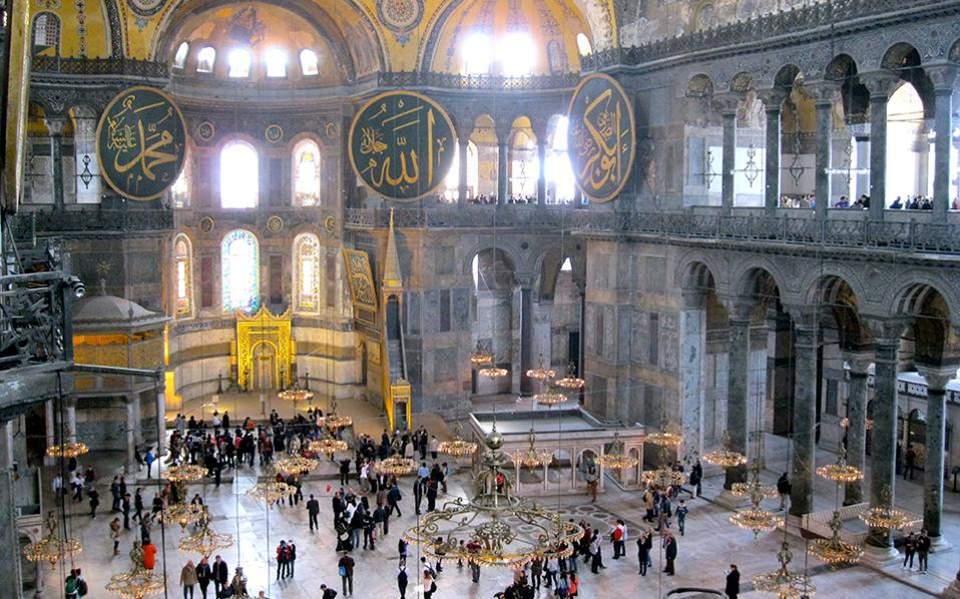 Hagia Sophia is not part of the Greek-Turkish agenda. It is a world heritage site located in Turkish territory. However, its possible reconversion into a mosque would poison relations between the two countries and peoples for many years.
Hagia Sophia is not part of the Greek-Turkish agenda. It is a world heritage site located in Turkish territory. However, its possible reconversion into a mosque would poison relations between the two countries and peoples for many years.
Turkish President Recep Tayyip Erdogan has his own perspective on the issue. He reads the polls and sees that a large part of the Turkish public wants the “Great Church” to become a mosque once more. He is under pressure from polls and his far-right allies. This is an opportunity to overturn a historic decision taken by Kemal Ataturk 86 years ago that is still controversial in the neighboring country. Erdogan is well aware that such a symbolically weighted move on Hagia Sophia would divide our peoples, possibly more than anything else. He knows that Greeks feel very strongly about this monument and that transforming it into a mosque will not only anger the rabid nationalists but all Greeks, stoking extremist sentiment and further limiting the scope of diplomacy.
I don’t know how we got from the Erdogan of the early days, who did not have Greek-Turkish relations on his “radar,” to today’s; from an Erdogan who believed that the deep state consistently stokes tensions with Greece to strengthen its role and undermine his position, to the current marriage of the traditional deep state with the “Palace” in Ankara. But here we are. It’s possible we missed important opportunities for the two countries 15 or eight years ago.
Future historians will one day study this period and explain how we got to where we are today. We have reached a point, I am afraid, where the Turkish president no longer cares about the impact that a reconversion of Hagia Sophia into a mosque would have on Greece. He might even be fascinated by the idea that it could bother Greece so much.
Something has gone very awry in Greek-Turkish relations in recent months. It does not make sense, especially given the mood in which the Greek premier started his term. The channels of communication – whether the official lines or those working backstage – are dead.
Ankara has made no secret of its intention to escalate tensions at some point in September. The issue of Hagia Sophia, the tents going up on the other side of the Evros border, the overflights, are all parts of a set of pressure tools. The only way to avoid a fateful escalation is if one of the two leaders picks up the phone and expresses a desire for some kind of dialogue. But if Erdogan insists on Hagia Sophia, he will know that this already distant possibility is being removed for good, or is completely undermined. If he does, it means he doesn’t care. If he doesn’t care, it means we have to prepare for a difficult fall.
No comments:
Post a Comment